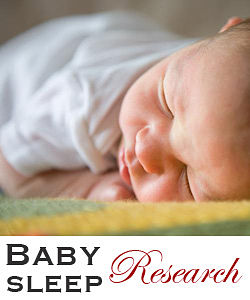 Baby sleep problems are pretty common. For new parents especially, the constant wake-ups and lack of sleep in general are stressful. There’s also a lot of free advice and information out there — mommy blogs, parenting web sites, social media — and it can be overwhelming. It can also be untrue! There is no truth requirement for the internet. So we’ve collected the medical and scientific research on important baby sleep topics to help distinguish fact from fiction.
Baby sleep problems are pretty common. For new parents especially, the constant wake-ups and lack of sleep in general are stressful. There’s also a lot of free advice and information out there — mommy blogs, parenting web sites, social media — and it can be overwhelming. It can also be untrue! There is no truth requirement for the internet. So we’ve collected the medical and scientific research on important baby sleep topics to help distinguish fact from fiction.
Baby Sleep Safety Research
Safety is one of the most important areas of baby sleep research. Preventing injury and death from SIDS is obviously a priority. Every few years, the American Academy of Pediatrics re-evaluates and then publishes their baby sleep safety guidelines. These recommended practices are based on two sources of information:
- Published research on the causes and prevention of infant injury and/or death, and
- The collective experience of hundreds of pediatricians in the AAP
Many of the current baby sleep guidelines from these pediatricians are common sense things along the lines of don’t cover your baby with loose blankets or pillows. But some of them — like the recommendation against home heart rate / breathing monitors — were surprising, at least to me. I hit the highlights of these guidelines in my article on 10 safe baby sleep tips.
Baby Sleep Disorders
Virtually all parents experience the frequent wake-ups and late-night feedings of newborns. The first couple of months are rough. That’s part of having a baby. Persistent baby sleep disorders, however, are prevalent: at least 10% of parents report a problem to their pediatrician in the first 12 months.
We know this is under-reported, too, because some pediatricians don’t specifically ask about baby sleep problems. Among the most common types of baby sleep disorders are:
- Sleep onset, when the baby has trouble falling asleep
- Sleep maintenance, in other words, the baby won’t stay asleep for long periods
- Sleep duration, the total amount of sleep a baby gets each day (usually not enough).
See our article on baby sleep disorders for details on these and other common baby sleep issues.
Sleep Training Research
Baby sleep problems are a significant burden on new parents as well as on healthcare systems, and they’ve been the subject of a great deal of research. Some of the goals include understanding the true prevalence of baby sleep problems, how they impact families, and whether or not they can be treated.
One recent study evaluated the possible long-term benefits or harms of baby sleep training interventions. Over the course of two years, researchers conducted a clinical trial, comparing babies that had sleep training to those that did not. They looked at both short-term and long-term effects. The results were clear:
- Sleep training (as opposed to taking no action) provided a clinically significant improvement in baby sleep patterns and night wakings.
- There were no harmful long-term effects on the baby’s mental or physical health or parent-child relationships.
Meanwhile, the parents who did sleep training enjoyed the short-term benefits of it as well: a baby with a healthy sleep schedule who learned to sleep through the night. You could see those benefits, too! See our baby sleep training section to get started.